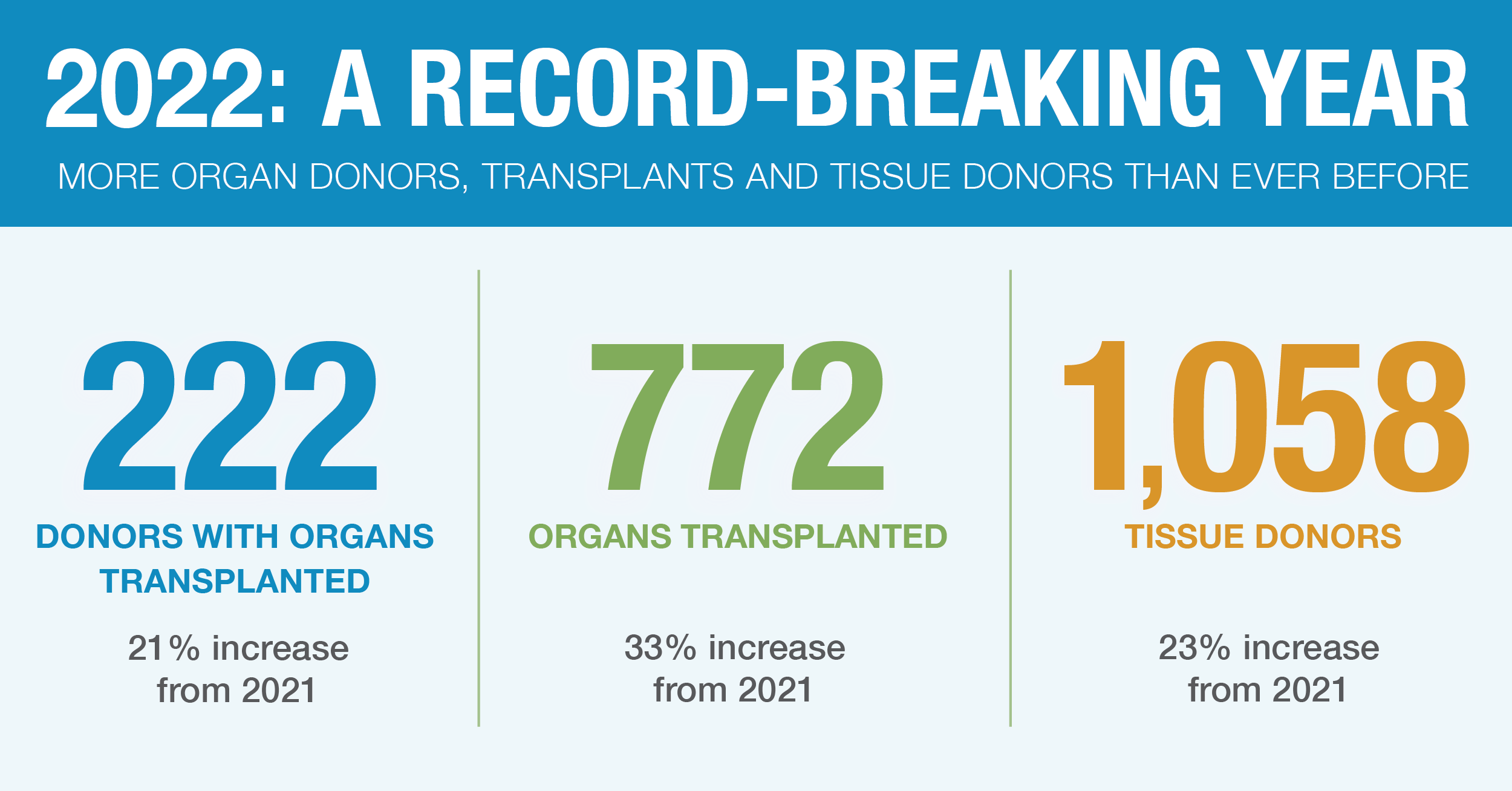Over the past three decades, LifeSource has provided hope and healing for thousands of grieving families in our communities and new life for transplant recipients. Scroll through some of our notable milestones.
LifeSource is formed through a collaboration of local transplant centers: Hennepin Healthcare, University of Minnesota, Mayo Clinic and Abbott Northwestern Hospital.
LifeSource hires its first employee, Susan Gunderson, and is granted full membership in UNOS as an organ procurement organization.
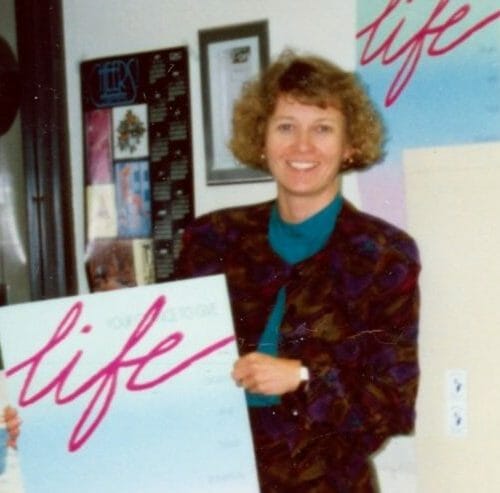
Sanford Fargo (formerly St. Luke’s Hospital) and Sanford Bismarck (formerly MedCenter One) open their transplant centers.

LifeSource initiates its donor family services program to provide ongoing grief support, resources and recognition events for donor families.
Learn more
Avera McKennan, in Sioux Falls, South Dakota, opens its transplant center.

LifeSource begins providing preservation services for its transplant centers, creating efficiencies in the donation process.
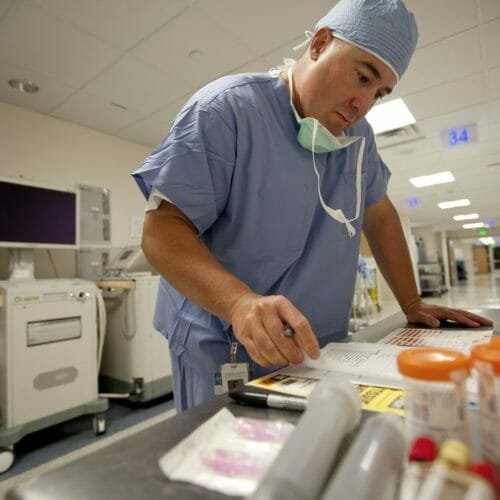
The first annual Golf Classic fundraiser was held and organized by friends and family of Terri Opp, a young woman who died while waiting for a heart transplant. LifeSource became involved after a few years, and the event has now evolved into the LifeSource Golf Classic. Since 1995, over $2.3 million has been raised through this event to support educational programs that increase donor designation and grow resources for donor families.
Learn more
LifeSource begins its volunteer program to increase public support for donation. Most volunteers, now called Donate Life Ambassadors, are donor family members or recipients. Currently, we have over 270 ambassadors engaged throughout our three-state region who share their stories and encourage donor registration.

LifeSource expands donation options for the families it serves, offering the opportunity to donate tissue.

South Dakota Governor Bill Janklow initiates the first Donor Family Recognition Ceremony hosted jointly by LifeSource and the State. The event has been carried on by every governor since then, and the tradition has spread to both North Dakota and Minnesota.
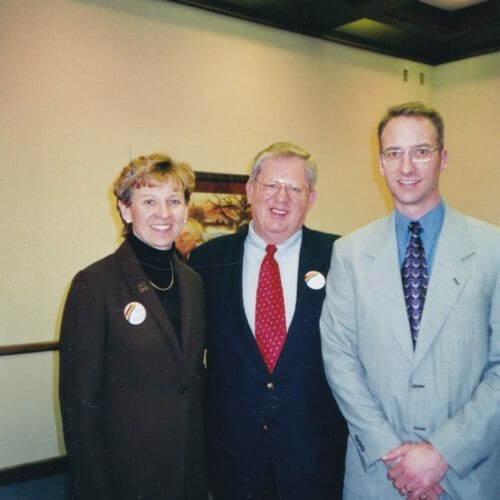
Minnesota, North Dakota and South Dakota pass legislation honoring a donor’s documented decision. Today, over half of the Upper Midwest have registered as donors.
LifeSource joins donation agencies around the country as part of Donate Life America (formerly the Coalition on Donation), a national nonprofit dedicated to increasing donor registration and creating a culture where donation is embraced as a fundamental human responsibility.
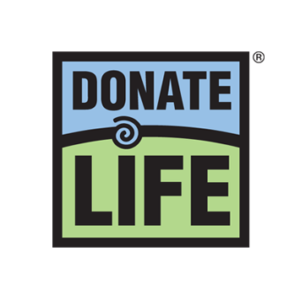
The U.S. Health Resources and Services awarded a $500,000 grant to LifeSource and Southside Community Health Services to create a public awareness campaign intended to increase organ donation within the Twin Cities African American community.
This program was designed to increase the knowledge among African Americans of the need for organ donation, and to dispel any false understandings; to discover and address any barriers to sustaining proportionate consent rates; and to increase the number of African Americans who authorize donation.
Learn more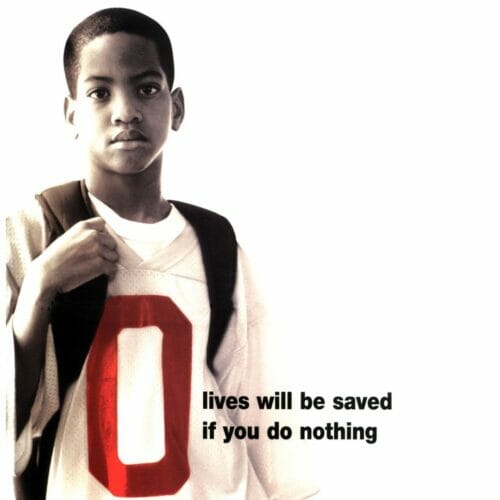
State law is passed in Minnesota that mandates 30 minutes of education about donation is included in driver’s education classes. LifeSource provides materials and curriculum, free of charge, for instructors to meet this mandate. Since the law was enacted, support for donation among new drivers has increased.
Learn more
Sanford Sioux Falls Hospital, formerly known as Sioux Valley Hospital, begins its transplant program.

LifeSource launches an online donor registry in the state of Minnesota. At the press conference announcement, Governor Tim Pawlenty becomes the first Minnesotan to add his name to the online donor registry.
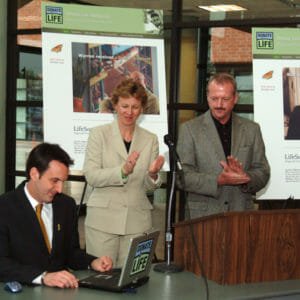
The Revised Uniformed Anatomical Gift Act (UAGA) is adopted in Minnesota, North Dakota and South Dakota. The law governs donation and ensures that a person’s individual, lifetime decision to be a donor is honored upon their death. In 2018, 73% of organ donors and 60% of tissue donors cared for by LifeSource were donor designated.
North Dakota passes a state law to allow youth under the age of 18 to register as a donor on their driver’s license or state ID card. The law was supported by friends of Alexa Kersting, a young girl from West Fargo, ND who died while waiting for a lung transplant.

LifeSource launches its Barbershop Conversations program, funded by a federal grant. The aim of the program is to increase donation in the Twin Cities African American community by meeting people where they’re at and providing education on health, donation and transplantation through partnerships with local barbers.
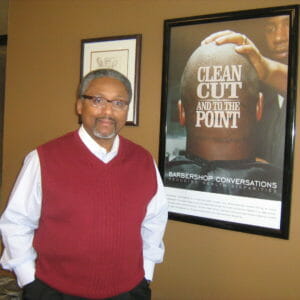
LifeSource opens its Donor Services Center, bringing the crucial function of referral management, tissue and eye donation family conversations and donation coordination in-house.

LifeSource launches its signature education event – the Donate Life Symposium – with 149 attendees. The symposium occurs every two years; in 2017, the event was attended by over 700 healthcare and end-of-life professionals.
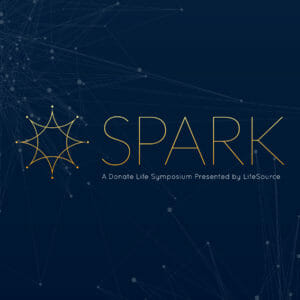
LifeSource secures a federal grant and partners with Rapid City Regional Hospital to create our Donate Life Black Hills project. This program was centered on healthcare professionals sharing the message of donation in their community and featured several videos of hospital staff stating their support and educating the public.

The Minnesota legislature passes a bi-partisan bill to allow Minnesotans to donate $2 or more to donation education when they apply for or renew their driver’s license, state ID card or vehicle registration.
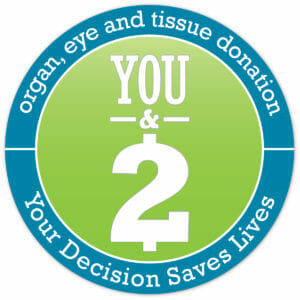
North Memorial Hospital creates the first Wall of Heroes in the LifeSource region. This touching tribute includes the photos of donors the hospital has cared for, and a beautiful statement of support.
Learn more
The state of South Dakota initiates several important law changes to make it easier to register as an organ, eye and tissue donor.
Learn more
LifeSource’s Board of Directors formally approves the launch of an intentional fundraising program to support public education and donor family care. Learn how you can contribute at the link below.
Learn more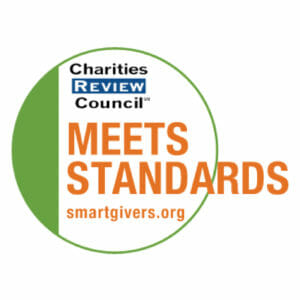
Thanks to the HIV Organ Policy Equity Act (HOPE ACT), enacted on November 21, 2013, it is possible for people who are HIV+ to become organ donors.
Learn more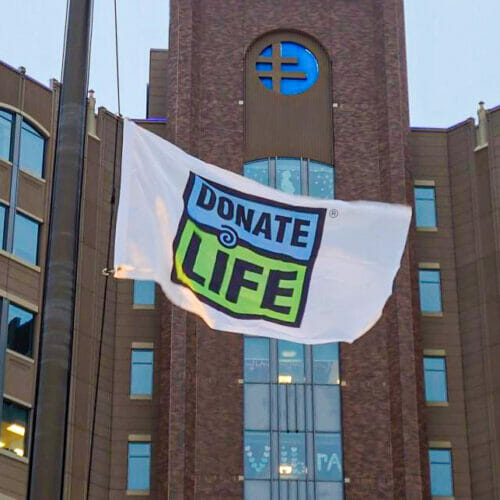
LifeSource moves into its new home in Minneapolis on West River Road. Key features include a healing garden to honor the gifts of donation and an on-site clinical space. The following year, onsite tissue recovery begins, making the process smoother for donor families and hospital partners.
Learn more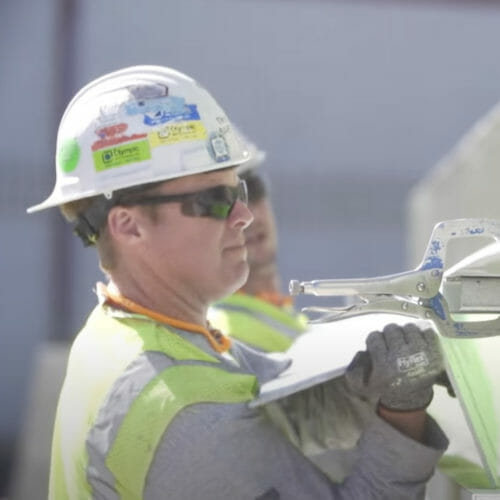
LifeSource launches its Gallery of Hope, a collection of tributes accessible online, offering donor families the opportunity to recognize and remember their loved one through photos and words. In addition to the online version, donor families and guests can see the Gallery of Hope prominently displayed at LifeSource in Minneapolis. Click on the link below to visit our Gallery of Hope.
Learn more
With the move to our new headquarters, LifeSource creates a healing garden to recognize organ, eye and tissue donors and their families. The garden serves as a peaceful and reflective community gathering space. Each spring, we inscribe donor names into our memorial wall and host a dedication ceremony. Learn more about our legacy opportunities below.
Learn more
LifeSource receives $200,000 to provide donation education to underserved communities. This legislatively appropriated funding was managed by the Minnesota Department of Health and supported a program between LifeSource and Minnesota transplant centers to increase support for donation among the American Indian community. The resulting campaign, Talk Donation, focused on increasing conversations about this important topic with the Twin Cities American Indian community in a culturally-responsible way by highlighting real people’s thoughts on donation and transplantation.
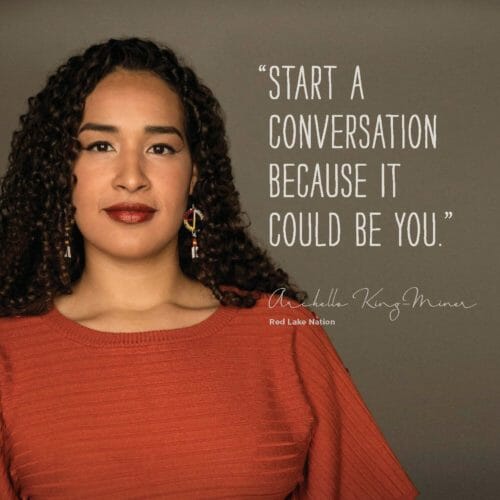
LifeSource facilitates a first-of-its-kind gift of donation in the Upper Midwest – a face transplant – in partnership with Mayo Clinic and Sanford Health. This unique and generous gift was provided by a donor named Calen “Rudy” Ross and his wife, Lilly.
Learn more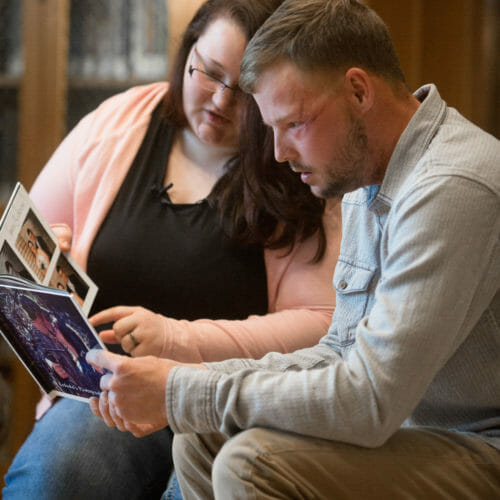
At the request of hospitals and families, LifeSource expands its programs to include eye donation. Our organization now provides comprehensive donation services for organ, eye and tissue donation, streamlining the process for hospital partners and providing more effective care for donor families.
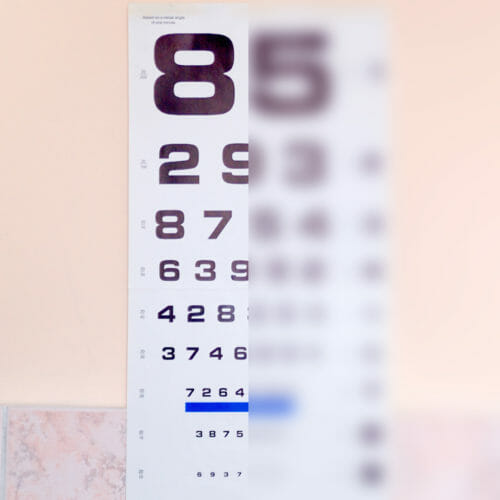
Team MN-DAK becomes a program of LifeSource, bringing in-house the celebration of donation and transplantation through athletic competition. Team MN-DAK participates in the Donate Life Transplant Games of America and, in turn, honors donors, donor families, celebrates transplant and encourages others to register as donors.
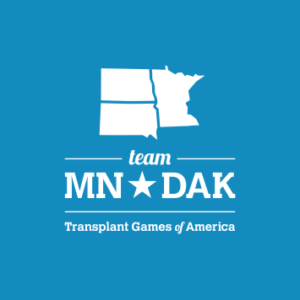
Minnesota leads the nation and becomes the first state to allow for donor registration on hunting and fishing licenses, and many states have since pursued, or are interested in pursuing, similar legislation. In the first full year of implementation, more than 32,000 Minnesotans registered as donors through this unique opportunity.
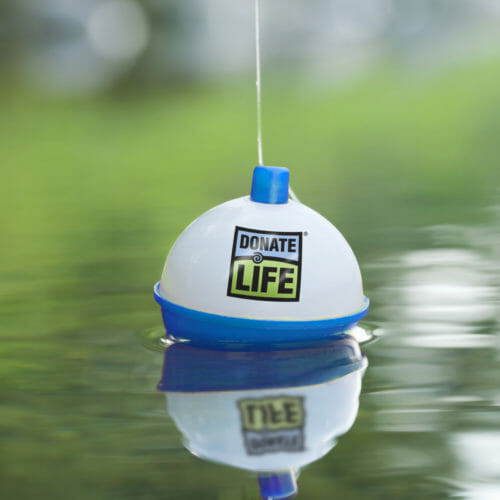
LifeSource’s dedication to performance excellence and improvement is recognized with the “Excellence Level” of recognition from the Performance Excellence Network (PEN). This is the highest recognition given by PEN, indicating mature, well-aligned organizational processes, systematic evaluation and improvement, and strong organizational results with some leading the industry.

LifeSource clinical team launches Heartbeat in a Bottle program. These small tokens we give have become a tangible way for us to acknowledge and honor the lives of our donors, in the midst of their deaths.
Learn more
LifeSource is honored as a Top Workplace on the annual Star Tribune list, as ranked by employees. The engagement factor most cited by employees is “connection to the mission.”

LifeSource launches a Simulation Laboratory (SIM Lab) to more efficiently and cost-effectively provide training for clinical teams. This means getting donation coordinators trained and in the field independently more quickly, maximizing opportunities to save and heal lives.
Learn more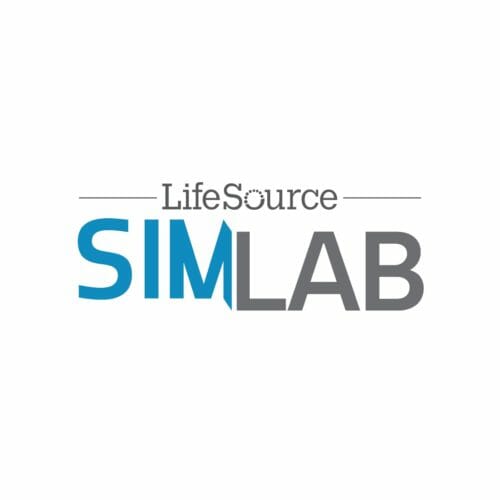
LifeSource opens its new Rochester office.
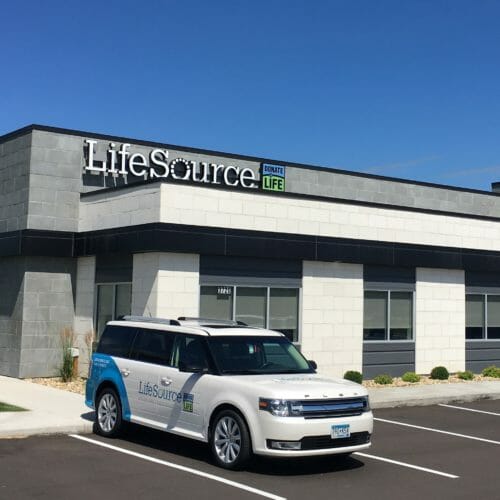
LifeSource creates and launches a new public education campaign called “Check the Box,” showing that anyone can register as an organ, eye and tissue donor. More than 2.8 million people have watched the signature campaign video.
Learn more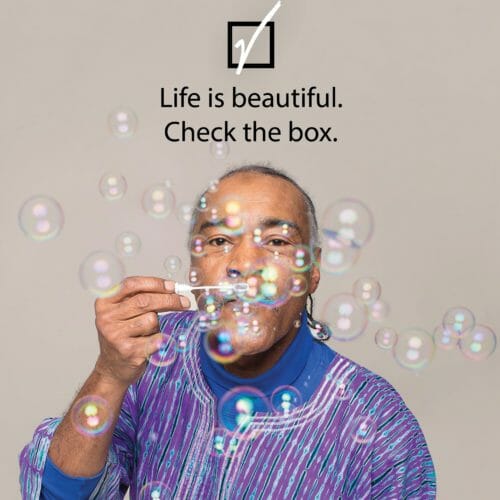
Children’s Minnesota becomes the ninth hospital in the LifeSource region to add a transplant center.

LifeSource engaged in interactive drama simulations with EffectiveArts, an organization that trains on high-intensity situations. This learning experience put our donor family outreach teams in simulated emotional, high-stakes interactions that help prepare them for the intensity and unpredictability of real-world situations.
LifeSource has since continued engagement with EffectiveArts, expanding to the Donor Services Center, the hub of our clinical work.

LifeSource announced a new partnership with Dakota Lions Sight and Health (DLSH) focused on expanding opportunities for corneal donation and transplantation. This partnership leverages the unique strengths of both organizations and ensures stewardship of the gifts of donation by focusing on efficiency and quality. LifeSource and DLSH have a long history of working together to facilitate organ, eye and tissue donation, and this partnership builds upon that long and successful history.
Learn more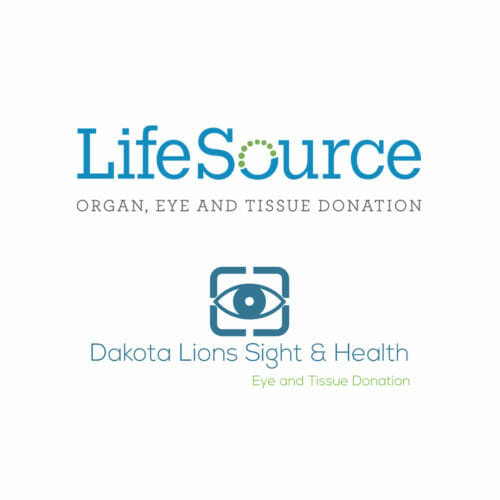
Medical advancements have contributed to the increases in organ donation. For example, organs from donors with Hepatitis C, certain cancers or HIV can now be successfully transplanted thanks to effective drug treatments. Regional transplant centers make these extraordinary donor and recipient matches possible.

On September 21, LifeSource team members provided a half day workshop for 85 interpreters representing about 30 languages.
This session was a unique opportunity to foster strong relationships between LifeSource and the interpreter community and develop strategies to collaboratively support non-English speaking families. The session concluded with robust dialogue including questions from interpreters as well as recommended opportunities for collaboration.
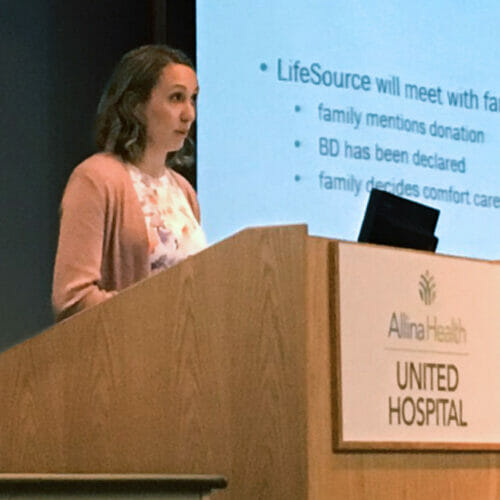
LifeSource joins APOLLO Project. The goal of the APOLLO study is to provide future scientific data that will better inform the safety of kidney donation and transplantation in those from African ancestry.
The study is a long-term research study is being conducted to improve the outcome of kidney transplant recipients. It has been discovered that some people of African descent possess a gene called APOL-1. This study will aim to determine if outcomes of transplants differ if recipients and donors have the APOL-1 gene.
Learn more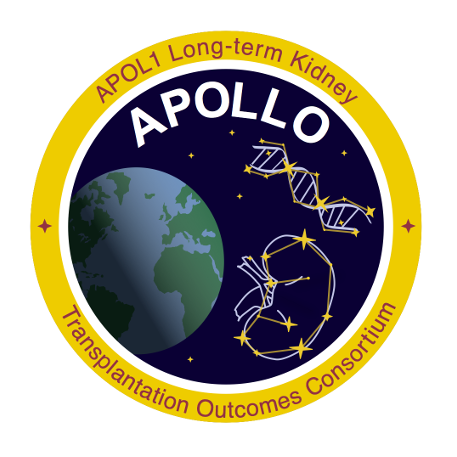
LifeSource honors 30 years of saving and healing lives. We’re honored to have cared for more than 10,000 generous donors and their families, providing more than 15,000 organs for transplant and more than 500,000 tissue grafts for people in need.
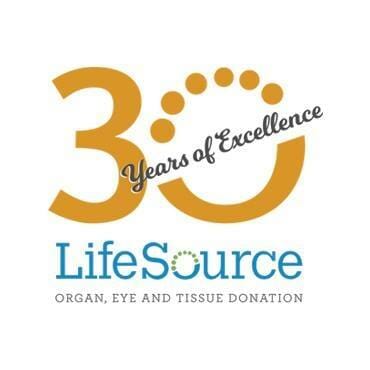
Established Equity, Diversity and Inclusion (EDI) Committee.
Learn more
During a global pandemic and civil unrest that upended American life and health, LifeSource team made possible the second highest number of organ donations in its 30-year history and helped save more than 600 lives.
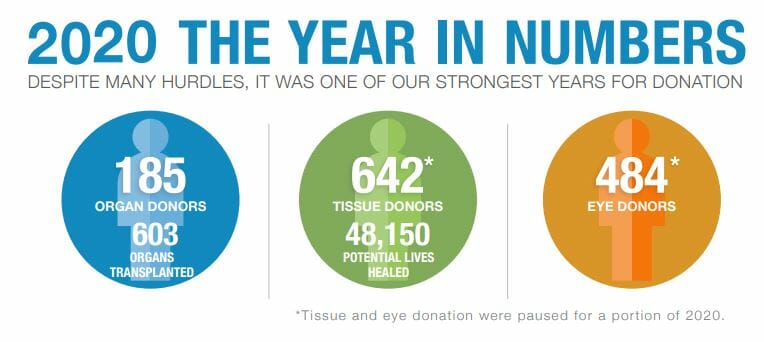
The challenges of 2020 demonstrated that the LifeSource team can overcome obstacles and achieve the impossible. With that experiential confidence, we’ve set two Bold Aims for LifeSource over the next several years:
(1) SAVE MORE LIVES: 1,000 transplants for local donors in 2027.
(2) EQUITY: Reflecting the diversity of our community by 2025. Achieving equity in communities of color saying “yes” to donation by 2030.
Learn more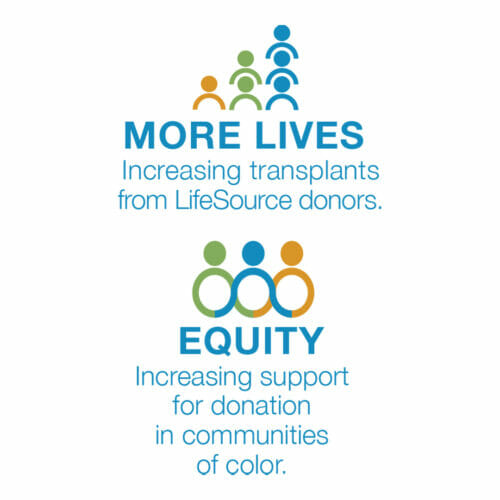
LifeSource Joins Biostasis Research Institute to Initiate Human “Organ Bank.” The University of Minnesota became one of two institutions in the United States to host a new center established by the Biostasis Research Institute (BRI) aimed at creating human organ banks through the cryogenic storage of organs donated for transplantation. This initiative aims to reduce time on the waiting list for future transplant recipients and would allow many others to become organ donors – a rare opportunity due to current medical criteria. This incredible work will advance the LifeSource mission to honor the heroism of every organ donor by maximizing the impact of their lifesaving gifts.
Learn more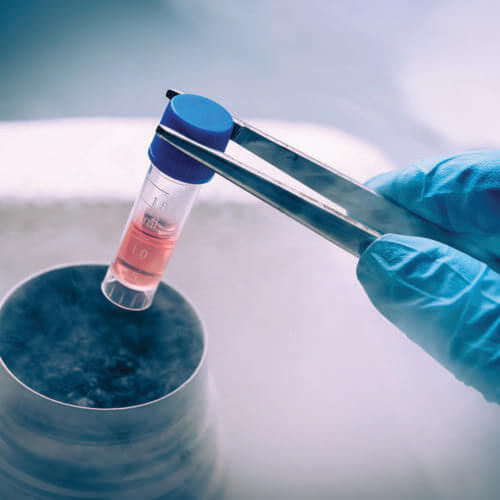
LifeSource, MissionGO and Mercy Hospital (part of the Allina Health system), conducted the first-ever test flight carrying a human pancreas via an Unmanned Aircraft System (UAS) on May 5, 2021.
Following a moment of silence led by Lead Pilot Ryan Henderson to honor the donor hero, this historic flight transported a research pancreas from Mercy Hospital in Coon Rapids, flew a 10-mile circuit over the Mississippi River, then returned to Mercy Hospital.
Learn more
In May, LifeSource honored the wishes of our 5,000th organ donor since official reporting began in 1990.

Knowing that true engagement requires input from those we serve, LifeSource formed a Community Advisory Council, chaired by Stella Whitney-West, CEO of NorthPoint Health & Wellness Center. The council provides valuable input to LifeSource to support the development of effective and sustainable equity programs.
Learn more
On July 20, the Stillwater City Council adopted a resolution to designate the City of Stillwater as a Donate Life℠ City. Stillwater, Minnesota is the first city in the nation to affirm its community-wide commitment to organ, eye and tissue donation by being designated as a Donate Life City.
Learn more
LifeSource implemented the new United Network for Organ Sharing (UNOS) Organ Tracking Service utilizing GEGO tracking technology. Seamless integration with DonorNet® and DonorNet Mobile℠ allows Organ Procurement Organizations and transplant hospitals to view the shipment on a map in real time.
LifeSource adopted practice of recognizing the deep and enduring relationship between Indigenous people and the land we call the United States. This practice acknowledges the historical, current, and future practices that result in the marginalization, displacement, and extermination of Indigenous people in our region. Furthermore, this regular and consistent practice demonstrates our respect for the people of the 23 sovereign Indigenous Nations in our designated service area.
At the start of all organizational and department-wide meetings, the meeting host will make a short statement acknowledging the land.

On November 4, LifeSource honored the wishes of our 10,000th tissue donor since the program began in 1999.
During the tissue recovery process, LifeSource team members activated a new initiative called “Meaningful Melodies,” taking extra care to honor donors by playing the donor’s favorite music and conducting other special tributes based on input from the family.
Learn more
Nichole Salaam is hired as LifeSource’s first Diversity, Equity & Inclusion (DEI) Director. Salaam will lead the organization’s diversity, equity and inclusion program both at the programmatic and administrative levels to drive one of two “Bold Aims” set for the organization’s future.
Learn more
LifeSource made possible 203 organ donors, the second highest number in its 32-year history saving 572 lives. That’s a 10 percent increase from 2020. Tissue donors were also at an all-time high at 862, healing more than 64,650 lives – a 34 percent increase from 2020. Eye donors increased by 20 percent with 579 local individuals giving the gift of sight.

Expanded engagement of community partners, including: Turtle Mountain Band of Chippewa; Barbers in Hennepin County/Ramsey County; Northside Urban Coalition; Tribal Relations Office and Community Engagement Office of Governor Walz; and through the Live your Healthy Life block party event.

Translated donor family materials into Spanish, Somali and Hmong to create more transparency and understanding for all families considering donation.

Peter Farstad announced as LifeSource Interim Chief Executive Officer.
Learn more
LifeSource leadership team launches year-of-learning through Intercultural Development Inventory (IDI) assessment.
Learn more“In honor of Pride month, LifeSource raised the Progress Pride flag to recognize and celebrate the accomplishments of our LGBTQIA+ communities and consider how all can advance the progress of civil rights and equity. We honored those who started this movement, brave enough to live their truth and forced to fight for their place in our society. We recognized that donation will not be equal until every member of the LGBTQ+ community can participate without discrimination. Proud of my organization.” – Peter Farstad, LifeSource Interim Chief Executive Officer
Starting June 2022, LifeSource is flying the Progress Pride flag – a symbol of unity, remembrance and hope – and continues to fly the flag every day forward. This is just one way we’re celebrating and showing our support and allyship for our LGBTQIA+ team members and community.
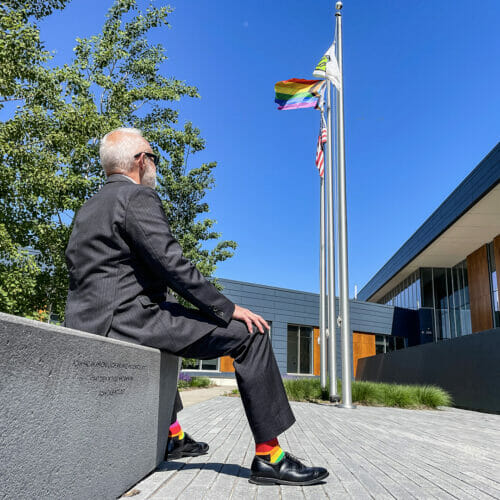
Turtle Mountain Band of Chippewa Turtle Mountain Band of Chippewa became the first in the nation to include organ donor designation on tribal IDs.
Learn more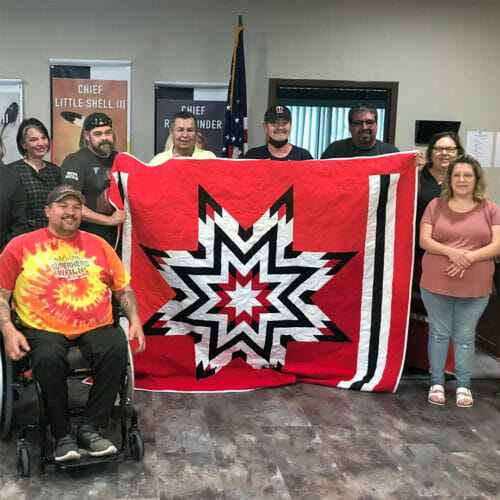
July was a milestone month for organ and tissue in the Upper Midwest with more donors than any other month in LifeSource’s 33-year history: 28 organ donors (84 organs transplanted/lives saved) and 118 tissue donors (more than 8,850 lives impacted). The second highest month saw 26 organ donors and 100 tissue donors. LifeSource is also on track to fulfill the wishes of more donors in 2022 than any previous year.
Learn more
Kelly White, RN, MS, becomes LifeSource’s next Chief Executive Officer (CEO) – only the second CEO since the nonprofit’s founding in 1989.
Learn more
On December 19, 2022, LifeSource raised the Donate Life Flag to honor a historic milestone: fulfilling the wishes of more than 1,000 tissue donors in a single year – a record since our tissue program began in 1999. The total tissue donors for 2022 was 1,058.
Learn more
In 2022, LifeSource fulfilled the wishes of more organ donors and tissue donors than any other year since the nonprofit’s founding in 1989. More organs were transplanted from those local donors in 2022 as well, reducing the national transplant waiting list.
